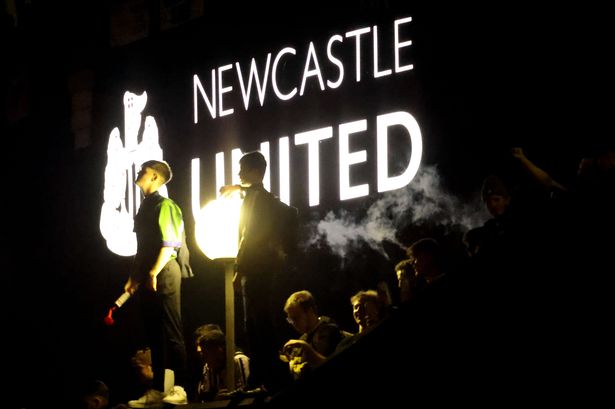It’s hard to find the right description for Jim White’s facial expression when he mentioned the name Lucien Favre on TalkSport earlier this week. Part dismissal, part ‘who he’, White’s pseudo-disrespect of the Swiss manager, whilst discussing possible replacements for Steve Bruce at St. James’ Park, said a lot about the insular nature of English football. Favre is not some no name, fresh off the streets of Saint-Barth’lemy, but rather a man with nearly 750-games worth of management experience, in some of Europe’s top leagues, and one of the more interesting options for Newcastle United at this juncture.
The Magpies are not the first Premier League side to show interest in Favre, with Crystal Palace considering him as a candidate to replace Roy Hodgson during the summer. The Swiss has enjoyed stints at Z’rich, Hertha Berlin, Borussia M’nchengladbach, Nice, and Borussia Dortmund; winning two league titles and a Swiss Cup with Z’rich, but perhaps most relevant to Newcastle, dragging M’nchengladbach out of the relegation mire and into the Champions League – finishing in the top-four in the Bundesliga in two of Favre’s four full seasons in charge of Die Fohlen.
The best cover and most emotional issue we have ever published – TRUE FAITH Souvenir issue as #NUFC takeover is completed at last – https://t.co/RjQLrP8Ief
— True Faith: Newcastle United Fanzine and Podcast (@tfNUFC) October 10, 2021
Favre achieved similar feats at Hertha, guiding what was considered a mid-table side into the UEFA Cup, and Nice, where a 3rd placed finish in Ligue 1 in 2017 provided the French side with a taste of Champions League football. Even at Dortmund, where things came to a somewhat disappointing end, results were widely described as ‘acceptable’, with the club finishing runners-up to Bayern Munich in each of Favre’s two full seasons at the helm.
Often described as a technical manager, Favre tends to display a calm persona publicly – features that might suit a Newcastle United side coming off two-and-a-bit years of Bruceball, and currently surrounded by the whirlwind of the takeover. A steady hand, but one that has shown an ability to get teams to punch above their weight, might be just what the club needs right now. Regardless of what the future might hold for Newcastle United, this is currently a team in transition, and should be treated as such.
Throughout his career, Favre has also shown an inclination to both nurture young talent – which many Newcastle fans would welcome, after seeing several players stagnate under Bruce – and a desire to play upbeat football; again, something Magpie’s fans would embrace after some rather dour offerings over the past two seasons. The Swiss has also shown some man management and diplomatic skill during his career, helping to get the best out Mario Balotelli at Nice, where the Italian scored 43 goals in 66 games under Favre, whilst helping various players take steps forward in their career.
This is not to say the Swiss has not clashed with players at previous clubs; with a rumoured spat between Favre and Allan Saint-Maximin at Nice – albeit the Frenchman did go on to play in 38-games under Favre before the latter departed – as well as tension between the Swiss and several key Dortmund players by the end of his tenure at the Westfalenstadion, mostly centred around the clubs style of play, which led to frequent defensive lapses as the team struggled to build from the back. But ‘that’s football’. Not everything works out at every club.
There is a new era upcoming for Newcastle United – we want to continue to be the place that provides diverse, intelligent and well-written content for the best fans on the planet – join us – https://t.co/4b3s4UJFRd #NUFC
— True Faith: Newcastle United Fanzine and Podcast (@tfNUFC) October 14, 2021
It would be fair to say Dortmund’s goals were/are somewhat different to Newcastle United’s as well. Whilst Der BVB were focussed on closing the gap on Bayern, something Favre struggled to do, Newcastle’s immediate focus is on steady progress; moving away from perennial relegation battles, and back into the fringes of the ‘European conversation’, something Favre has shown an ability to help with at previous clubs.
Like his persona, Favre could be considered something of a quiet candidate – he does not have the name recognition of a Conte or a Lampard, nor the obvious Premier League experience of Roberto Martinez – but his previous efforts perhaps makes him the best candidate of all. Again, this is not a Newcastle United side pushing for a title challenge, not yet, but one that is in need of direction, leadership, and a form of identity.
In Favre, there is a manager who may be able to help establish some of those traits. Newcastle are crying out for some kind of long-term development plan for the likes of Jamal Lewis, Elliot Anderson, and the Longstaff brothers, whilst the Toon Army have never been shy about their appreciation of seeing their team play with a bit of energy. Again, these are things Favre has been able to deliver at other clubs.
The wildcard here remains the Director of Football position; it would make more sense to fill that role first, and allow that person to lead the search for a new manager – of which Favre may still be one of their preferred candidates. But treated in isolation, the more one considers Favre, his history, his past successes, the more he would appear to suit Newcastle United in the here and now.
ROB McGREGOR’




